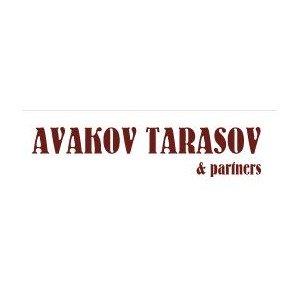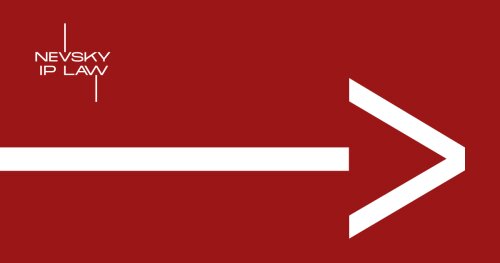Best Data Center & Digital Infrastructure Lawyers in Russia
Share your needs with us, get contacted by law firms.
Free. Takes 2 min.
Or refine your search by selecting a city:
List of the best lawyers in Russia
About Data Center & Digital Infrastructure Law in Russia
The digital infrastructure landscape in Russia has evolved rapidly, with significant growth in data center construction, cloud computing services, and related IT infrastructure. Data centers play a vital role in the country’s digital economy by providing secure environments for storing, processing, and transmitting data. Digital infrastructure includes not only physical data centers but also the fiber optic networks, data storage systems, and cloud platforms essential for modern business operations.
In Russia, the regulation of data centers and digital infrastructure is complex. It involves a combination of federal laws, technical standards, data protection rules, and industry best practices. Compliance with legal requirements is fundamental, especially given the strict approach to data localization, security, and privacy issues. This legal environment shapes how companies build and operate data centers and handle data within Russian territory.
Why You May Need a Lawyer
Navigating the legal intricacies of data centers and digital infrastructure in Russia is challenging. There are numerous situations in which the guidance of an experienced lawyer becomes essential, including:
- Drafting and negotiating contracts for construction, leasing, or operation of data centers
- Ensuring compliance with data localization and personal data handling regulations
- Managing intellectual property rights related to software and hardware used in digital infrastructure
- Resolving disputes with service providers, customers, or regulatory authorities
- Dealing with cybersecurity incidents or breaches of confidential information
- Handling mergers, acquisitions, or joint ventures involving data infrastructure assets
- Responding to inspections by governmental bodies or providing legal support during audits
A lawyer with industry-specific knowledge can help prevent costly mistakes and ensure your operations remain legal and efficient.
Local Laws Overview
Several key aspects of Russian law affect data centers and digital infrastructure:
- Data Localization: According to Federal Law No. 242-FZ, certain categories of personal data must be stored in Russia. This impacts where and how data centers operate.
- Personal Data Law: The Federal Law on Personal Data (No. 152-FZ) governs how personal data is collected, stored, and processed, imposing strict requirements on data operators.
- Information Security: Federal Law No. 187-FZ on the Security of Critical Information Infrastructure establishes cyber defense obligations for operators of essential digital infrastructure.
- Licensing and Certification: Certain operations, such as providing communication services, require licenses and compliance with technical standards set by Roskomnadzor and the Ministry of Digital Development.
- Tax and Investment Law: Tax treatment, customs duties, and incentives may apply to data center construction and operation, especially for projects deemed strategically important.
- Intellectual Property: Software, hardware, and technology used in digital infrastructure are protected by IP law, requiring diligent management and legal review.
Failure to comply with these laws can result in administrative penalties, business suspension, or even criminal liability in serious cases.
Frequently Asked Questions
What is data localization, and does it apply to my company?
Data localization requires that Russian citizens' personal data be processed and stored on servers located within Russia. If your company collects personal data from Russian customers or users, this law likely applies to you.
What are the penalties for non-compliance with personal data laws?
Fines range from administrative penalties to business suspension. Repeated or serious violations can lead to significant financial losses or criminal charges.
Does Russia require special licenses to operate a data center?
Operating a data center may require various permits or licenses, especially if you provide communication services or host critical infrastructure. Consult a lawyer to determine your obligations.
How does Russian law define critical information infrastructure?
It refers to systems vital for public security, defense, health care, transport, energy, and finance. Operators of such infrastructure have strict cybersecurity and reporting duties.
Can foreign investors build or own data centers in Russia?
Yes, but certain restrictions apply, especially if the data center is classified as critical infrastructure or located in strategic areas. Legal advice is strongly recommended.
Are there requirements for reporting data breaches?
Yes, operators must notify authorities of certain types of incidents, particularly those affecting critical information infrastructure or personal data.
What is Roskomnadzor, and what is its role?
Roskomnadzor is the federal service overseeing communications, information technology, and mass media. It enforces data protection, localization, and technical standards applicable to data centers.
Are contracts for data center services regulated?
Contracts must comply with civil law and sector-specific requirements, incorporating terms regarding liability, data protection, service levels, and dispute resolution.
How can I ensure my cloud or hosting service is legally compliant?
Choose service providers that meet Russian localization and security standards. Conduct legal due diligence and regularly update compliance procedures.
What challenges might I face when exiting or transferring data from Russia?
There are restrictions on international data transfer, and an exit or migration requires careful planning to avoid violating localization or data export rules.
Additional Resources
For further information or support, consider these organizations and resources:
- Roskomnadzor - Federal Service for Supervision of Communications, Information Technology and Mass Media
- Ministry of Digital Development, Communications and Mass Media of Russia
- Russian Association for Electronic Communications (RAEC)
- National Center for Cyber Incident Response
- Chamber of Commerce and Industry of the Russian Federation (for business consultations)
- Professional legal associations focusing on IT law and digital infrastructure
These bodies can provide guidance, up-to-date legislative information, and contacts for qualified legal professionals.
Next Steps
If you believe you need legal assistance regarding data centers or digital infrastructure in Russia, start by clearly identifying your specific needs or challenges. Collect all related documentation, including contracts, licenses, and correspondence. Consult an experienced legal professional specializing in IT, privacy, and infrastructure law.
Engage in a consultation to discuss your situation, obtain a detailed assessment of your legal obligations, and develop an action plan tailored to your business or project. Regularly monitor regulatory developments, as the digital infrastructure legal landscape in Russia evolves quickly.
Taking early legal advice ensures you remain compliant, avoid penalties, and position your business for long-term success in the Russian digital economy.
Lawzana helps you find the best lawyers and law firms in Russia through a curated and pre-screened list of qualified legal professionals. Our platform offers rankings and detailed profiles of attorneys and law firms, allowing you to compare based on practice areas, including Data Center & Digital Infrastructure, experience, and client feedback.
Each profile includes a description of the firm's areas of practice, client reviews, team members and partners, year of establishment, spoken languages, office locations, contact information, social media presence, and any published articles or resources. Most firms on our platform speak English and are experienced in both local and international legal matters.
Get a quote from top-rated law firms in Russia — quickly, securely, and without unnecessary hassle.
Disclaimer:
The information provided on this page is for general informational purposes only and does not constitute legal advice. While we strive to ensure the accuracy and relevance of the content, legal information may change over time, and interpretations of the law can vary. You should always consult with a qualified legal professional for advice specific to your situation.
We disclaim all liability for actions taken or not taken based on the content of this page. If you believe any information is incorrect or outdated, please contact us, and we will review and update it where appropriate.
Browse data center & digital infrastructure law firms by city in Russia
Refine your search by selecting a city.















